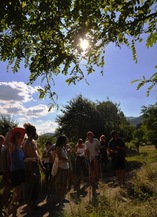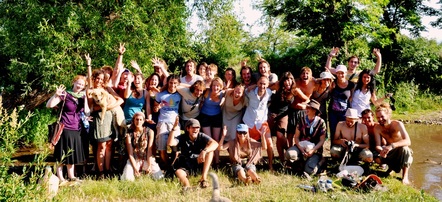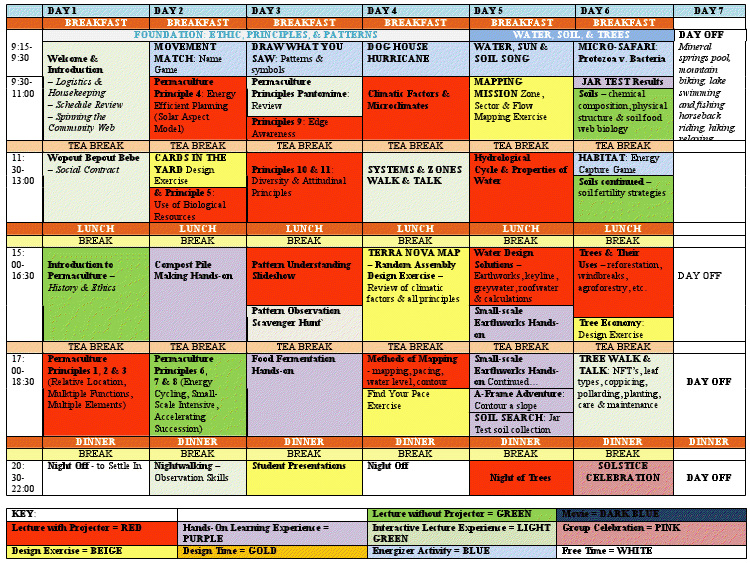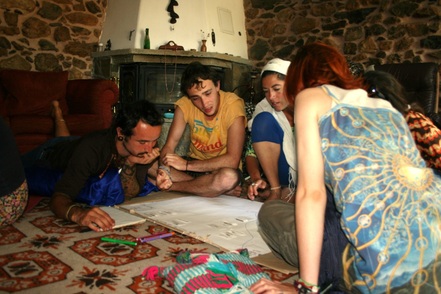PDC Overview
This curriculum also extensively covers Integrated Animal Systems, Food Fermentation and Culture and Natural Building. Our Aim
Our aim is to
creatively facilitate a learning process that empowers people in
permaculture design through experiential learning and hands-on training.
Each student completes the course with a site design and presentation
based on the skills and knowledge accumulated throughout the two weeks.
|
Schedule
We employ a daily schedule made up of four main class times during the day and one evening lesson. The evening sections are usually focused more on movies and/or presentations.
Week One is a mix of hands-on activities, lectures and interactive games that give students lots of information in preparation for the group design projects during the following week. We start the course with community building exercises and then jump right into the core principles of Permaculture. We take field trips into the beautiful Central Balkan and in the Valley of the Roses and explore the concept of patterns in nature. Week Two delves into the different ecosystems and climates and involves more practicals such as swale building ,natural pond building and plant propagation and we turn our attention to the group design project. Time is set aside for groups to work together to complete the design project assignment. On the penultimate day Students present their designs in groups. We finish with the No-Talent Show, a great way to celebrate the course We highly encourage costumes and complete silliness. The last morning is when you receive your design certificate and we discuss how to move forward into the Permaculture world. |
Example of Schedule for Week One
|
_
Field Trips
We incorporate field trips into the course which offer unique opportunities to learn from nature. We cover some basic plant identification and habitat study and take a look at a range of local ecosystems from high mountain alpine to lowland rivers. Field trips allow for a change of pace in the course, and present the natural world as one of our most valuable teachers. Course InstructorsBalkep TeamThe Balkep team brings a diversity of skill, passion and experience to the teaching team. See about us
|
_
Final Design ProjectsA multifunctional exercise entitled the Final Design Project give's students a chance to put the tools of design science directly into practice. At the end of the two-week course, students are required to present their final design project to their classmates, instructors, and clients. This design is based on the knowledge and understanding of course material, which is practically applied to an on-site location so that direct observation can take place.
In the first week of the course, students are split into design groups, each group focusing on a different site. Students work together to further develop community building skills, including decision-making and facilitation. This practice empowers students as they take control of their own learning process, both as individuals and as a community of emerging permaculturists. In their design, they must incorporate house design, food production systems, water systems, access, and economic sustainability. Students begin to develop the skills of consultancy and personal property layout. As facilitators, we choose to blend these two approaches to effectively address each student’s learning style and needs. We keep the design process open to the students’ creativity, and flexible within each unique site. We encourage students to utilize on-site resources, as well as information and inspiration from abroad. Finally the designs are presented at the end of the course to the whole class and critiqued for their ability to make connections for energy efficiency and fulfillment of the clients needs. This extended exercise allows students to learn the process while looking in depth at specific elements of a design. |



